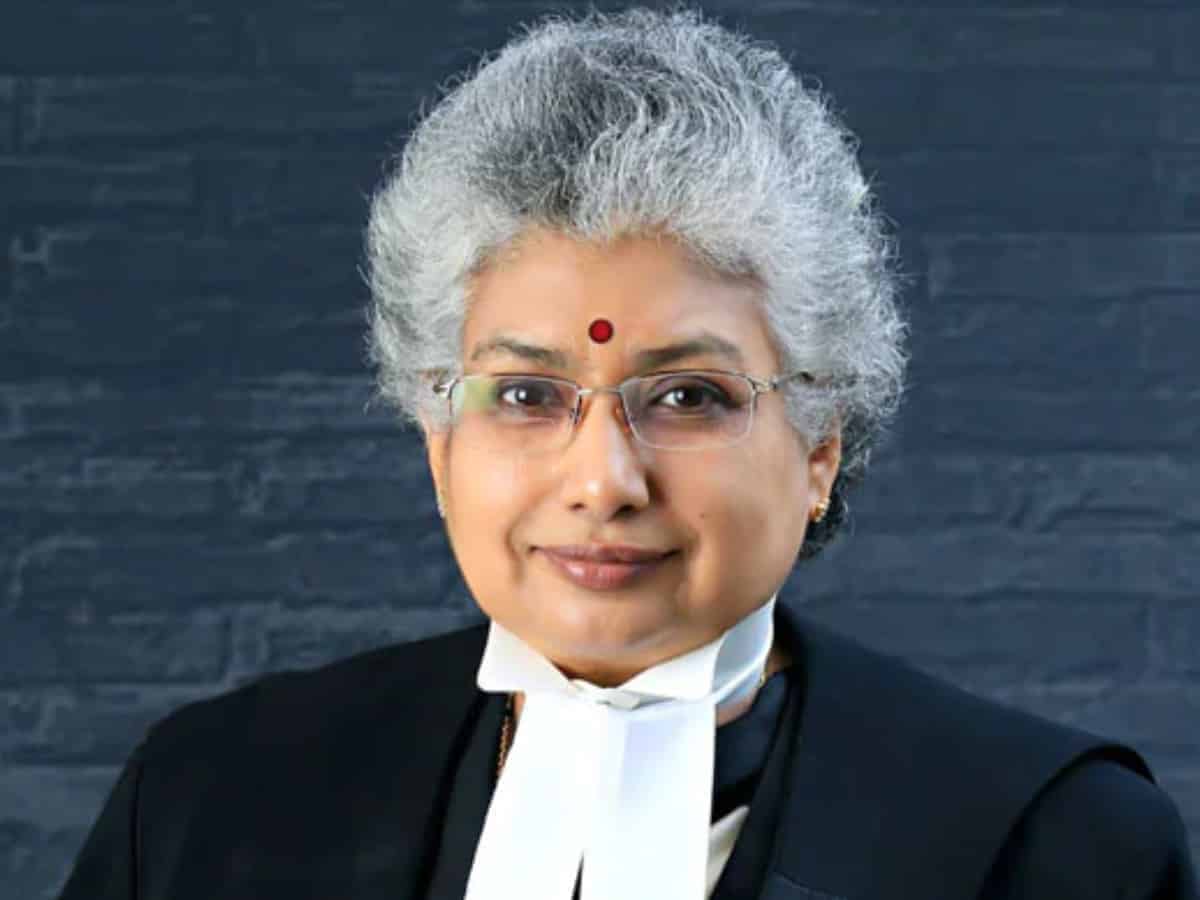
New Delhi: Supreme Court judge Justice B.V. Nagarathna on Tuesday said in India, human dignity is not only a value but a right that is enforceable and emphasised that public functionaries, celebrities, and other persons of influence owe a duty to the citizenry at large to be more responsible and restrained in their speech.
A five-judge constitution bench headed by Justice S.A. Nazeer and comprising Justices B.R. Gavai, A.S. Bopanna, V. Ramasubramanian, and Nagarathna, delivered the verdict in connection with a reference made to it to decide whether a public functionary or a minister can claim freedom of speech while expressing views in sensitive matters which are under investigation.
Justice Nagarathna delivered a separate judgment.
The majority judgment said additional restrictions cannot be imposed on the fundamental right of freedom of speech and expression of high public functionaries, as the reasonable restrictions prescribed under Article 19(2) of the Constitution are exhaustive.
Justice Nagarathna concurred with the majority judgment by four judges on the bench on the larger issue of additional restrictions on high public functionaries, but differed on some issues, which included whether the government can be held vicariously liable for the disparaging utterances of its ministers.
Justice Nagarathna said: “In India, human dignity is not only a value but a right that is enforceable. In a human-dignity-based democracy, freedom of speech and expression must be exercised in a manner that would protect and promote the rights of fellow-citizens. But hate speech, whatever its content may be, denies human beings the right to dignity.”
She added that given the specific submission of the petitioners herein that disparaging and vitriolic speech expressed at various levels of political authority have exacerbated a climate bordering on intolerance and tension in the society, which perhaps may lead to insecurity, it may be appropriate to sound a strong word of warning in this regard.
In a 121-page judgment, Justice Nagarathna said: “A statement made by a minister if traceable to any affairs of the state or for protecting the government, can be attributed vicariously to the government by invoking the principle of collective responsibility, so long as such statement represents the view of the government also. If such a statement is not consistent with the view of the government, then it is attributable to the minister personally.”
She noted that public functionaries and other persons of influence and celebrities, having regard to their reach, real or apparent authority and the impact they wield on the public or on a certain section thereof, owe a duty to the citizenry at large to be more responsible and restrained in their speech.
She added that while there are no infallible rules that can be formulated by the Court to define the precise threshold of acceptable speech, every citizen’s conscious attempt to abide by the constitutional values, and to preserve in letter and spirit the culture contemplated under the Constitution will significantly contribute in eliminating instances of societal discord, friction and disharmony, on account of disparaging, vitriolic and derogatory speech, particularly when made by public functionaries and/or public figures.
“This does not in any way imply that ordinary citizens who form the great mass of the citizenry of this country can shun responsibility for vitriolic, unnecessarily critical, diabolical speech, bordering on all those aspects mentioned under Article 19 (2) either against public functionaries/figures or against other citizens in general or against particular individuals,” she said.
The majority judgment referred to Sanskrit, Tamil, Hindi, and English texts to emphasise the importance of “sweet speech”.
The apex court referred to Tamil poet and philosopher Tiruvalluvar of the Tamil Sangam age in his classic “Tirukkural” and said while emphasising the importance of sweet speech, he said that the scar left behind by a burn injury may heal, but not the one left behind by an offensive speech.
The bench also pointed to a Sanskrit text which contains a piece of advice on what to speak and how to speak. “The meaning of this verse is: ‘Speak what is true; speak what is pleasing; Do not speak what is unpleasant, even if it is true; And do not say what is pleasing, but untrue; this is the eternal law’,” said the top court.
On October 5, 2017, a three-judge bench had referred the matter to the constitution bench to decide whether a public functionary or a minister can claim freedom of speech while expressing views in sensitive matters which are under investigation.



